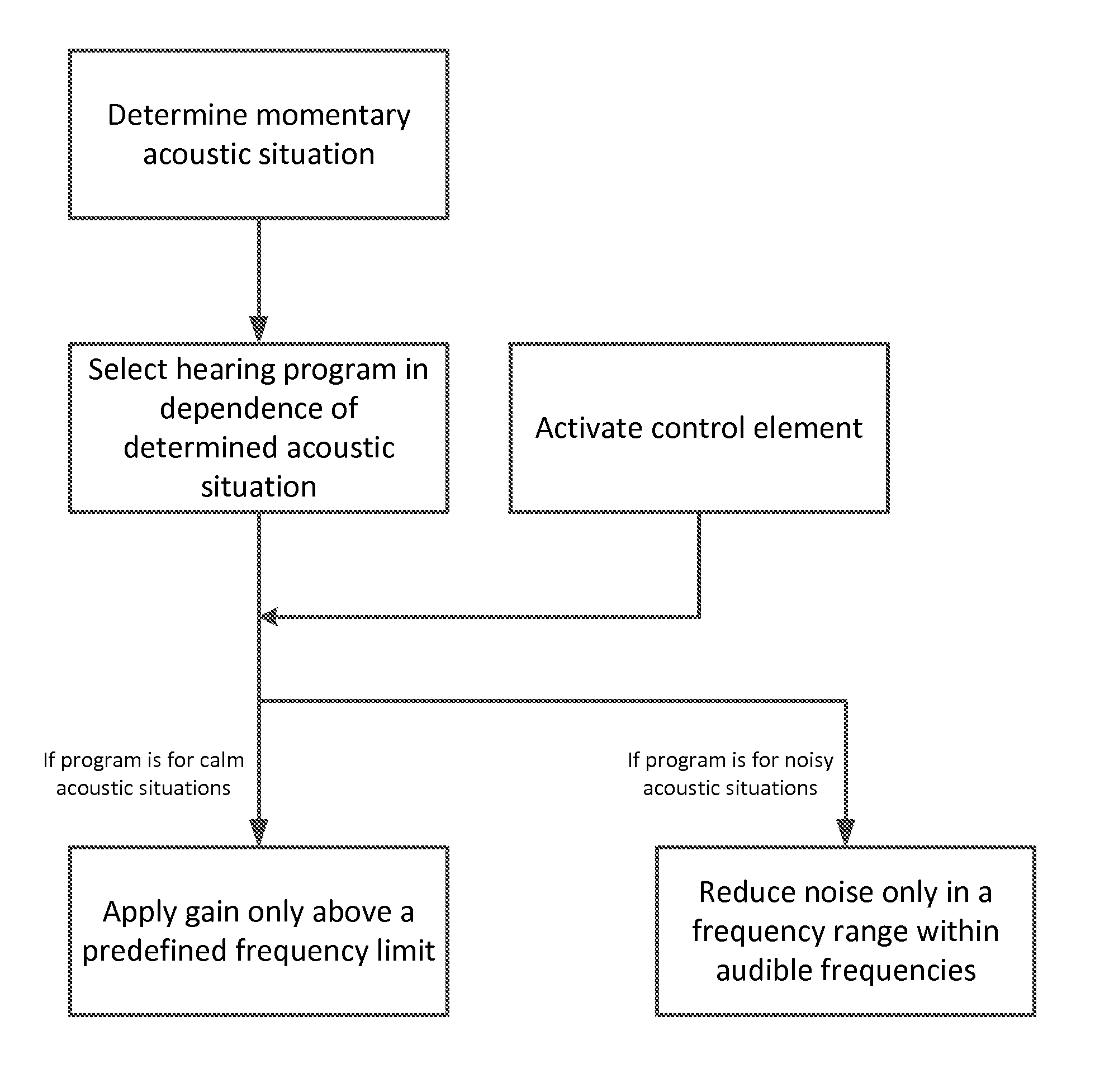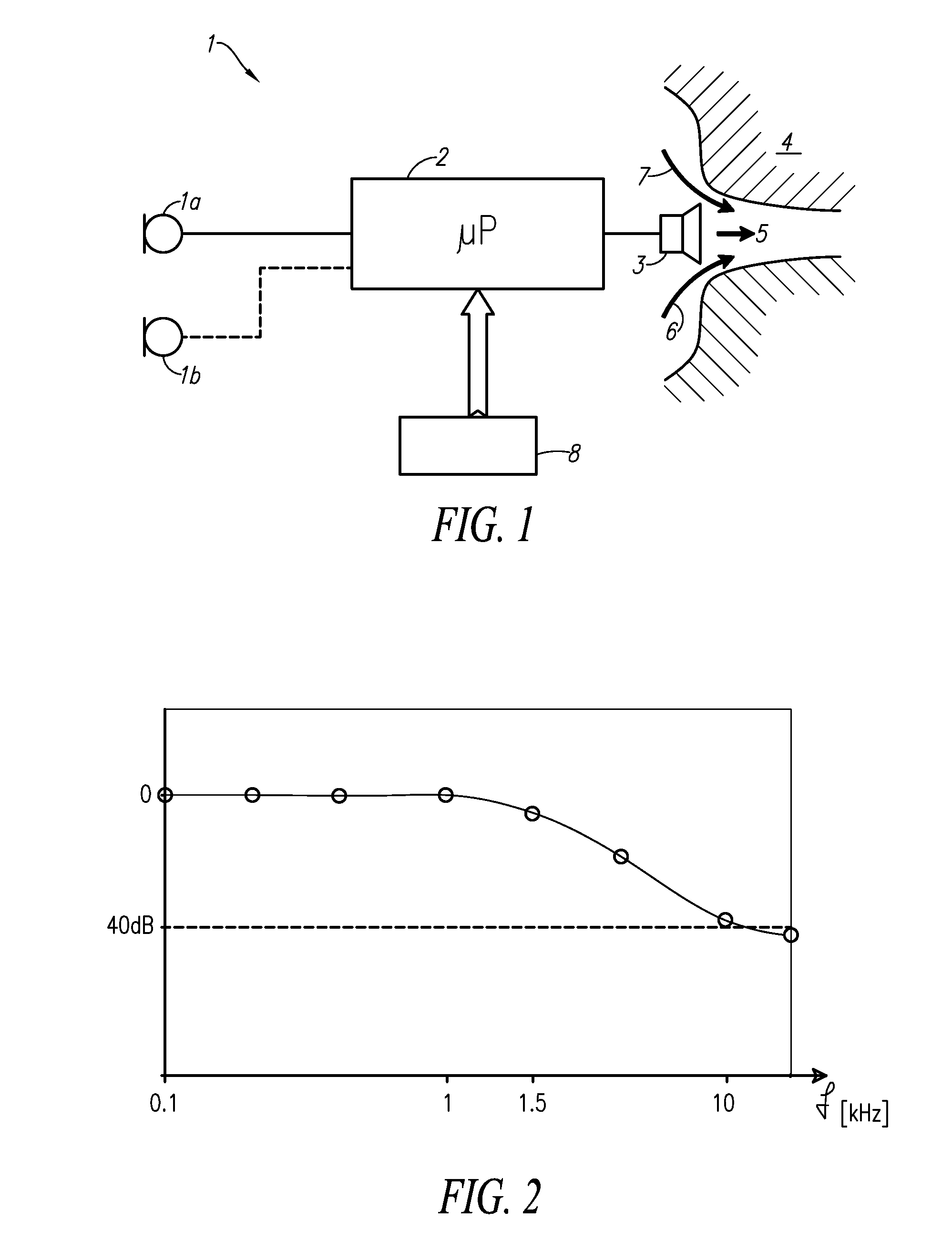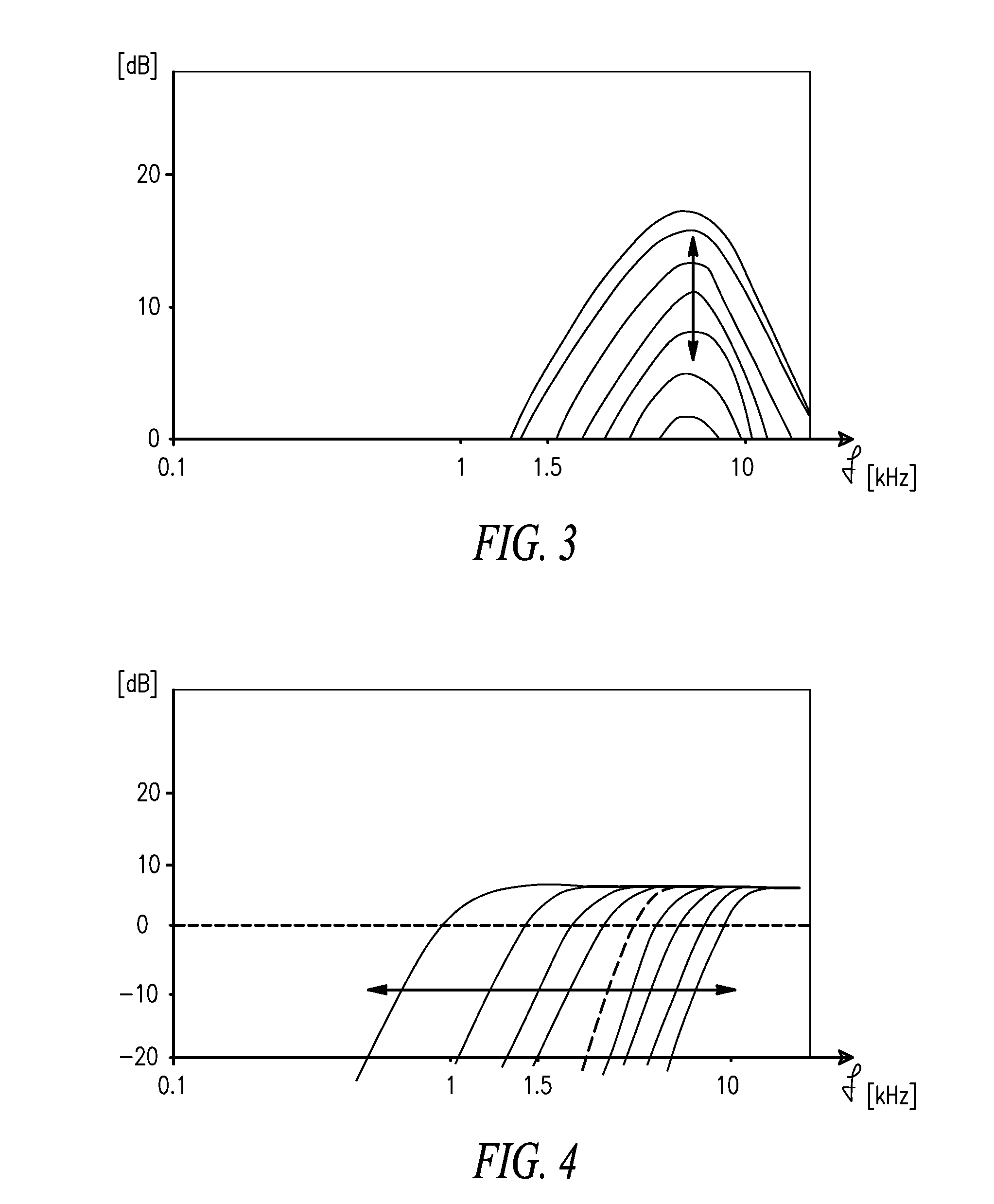Method for operating a hearing device as well as a hearing device
a hearing device and a technology for operating a hearing device, applied in the direction of amplification control, electrical apparatus, gain control, etc., can solve the problems of unaided hearing, low acceptance of known hearing devices used to correct mild hearing loss, and poor relation between audibility and intelligibility and the cost of the hearing device, so as to achieve smooth change
- Summary
- Abstract
- Description
- Claims
- Application Information
AI Technical Summary
Benefits of technology
Problems solved by technology
Method used
Image
Examples
Embodiment Construction
[0061]FIG. 1 schematically shows a hearing device 1 comprising one or two acoustical / electrical transducers 1a, 1b, e.g. microphones, a signal processing unit 2 and an electrical / acoustical transducer 3, called receiver in the field of hearing devices. The signal processing unit 2 is, on its input side, connected to the acoustical / electrical transducers 1a, 1b and, on its output side, connected to the electrical / acoustical transducer 3. The hearing device according to the present invention is a so called openly coupled hearing device, which means that the sound reaching the ear drum of the hearing device user is partly coming from the electrical / acoustical transducer 3 and partly as direct sound from the surrounding the hearing device user is in. This is illustrated in FIG. 1 by arrows 5, 6 and 7. FIG. 1 shows sections of an ear 4 and a corresponding ear canal of the hearing device user, the sound emitted by the electrical / acoustical transducer 3 being indicated by the arrow 5, and ...
PUM
 Login to View More
Login to View More Abstract
Description
Claims
Application Information
 Login to View More
Login to View More - R&D
- Intellectual Property
- Life Sciences
- Materials
- Tech Scout
- Unparalleled Data Quality
- Higher Quality Content
- 60% Fewer Hallucinations
Browse by: Latest US Patents, China's latest patents, Technical Efficacy Thesaurus, Application Domain, Technology Topic, Popular Technical Reports.
© 2025 PatSnap. All rights reserved.Legal|Privacy policy|Modern Slavery Act Transparency Statement|Sitemap|About US| Contact US: help@patsnap.com



